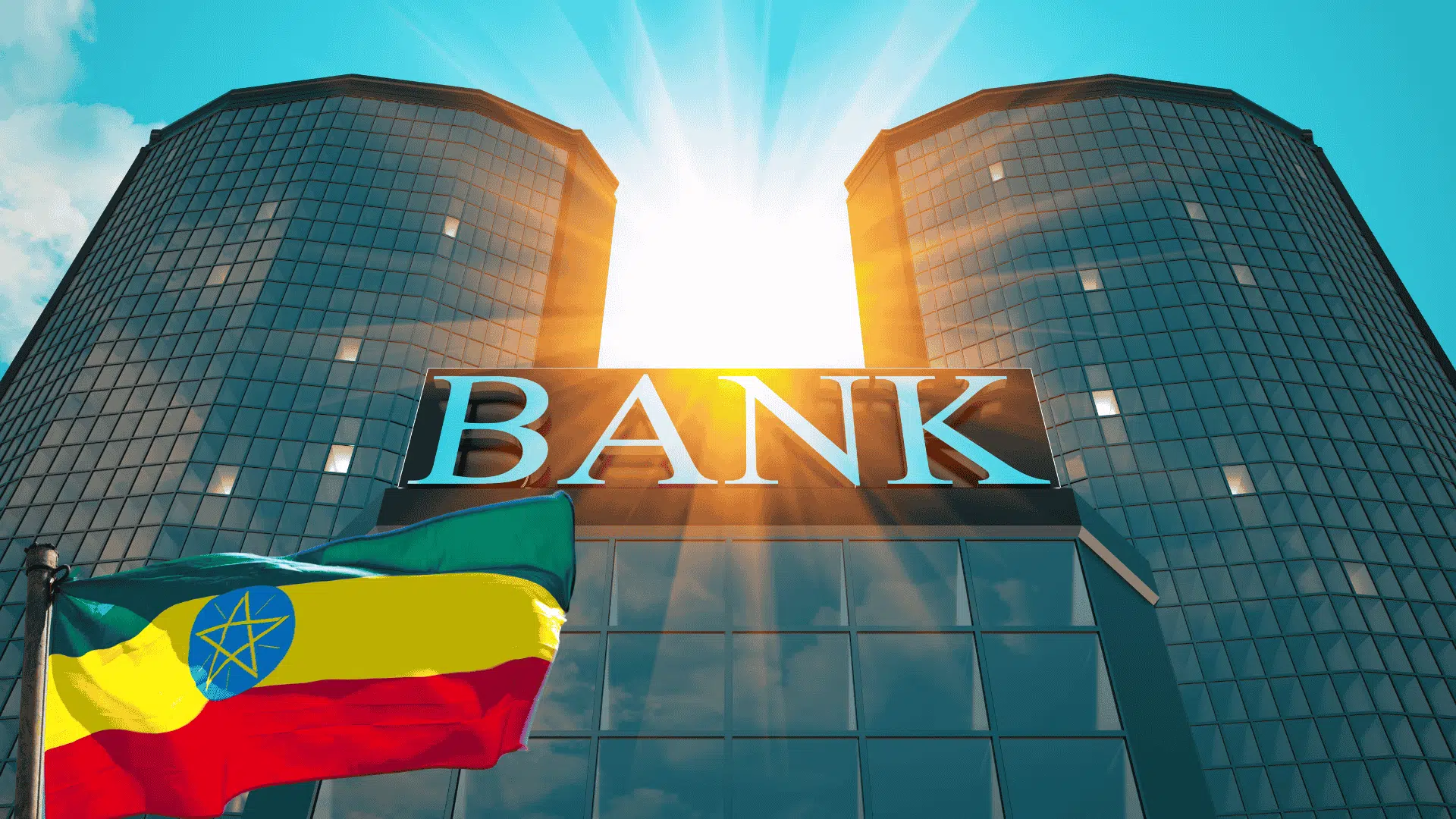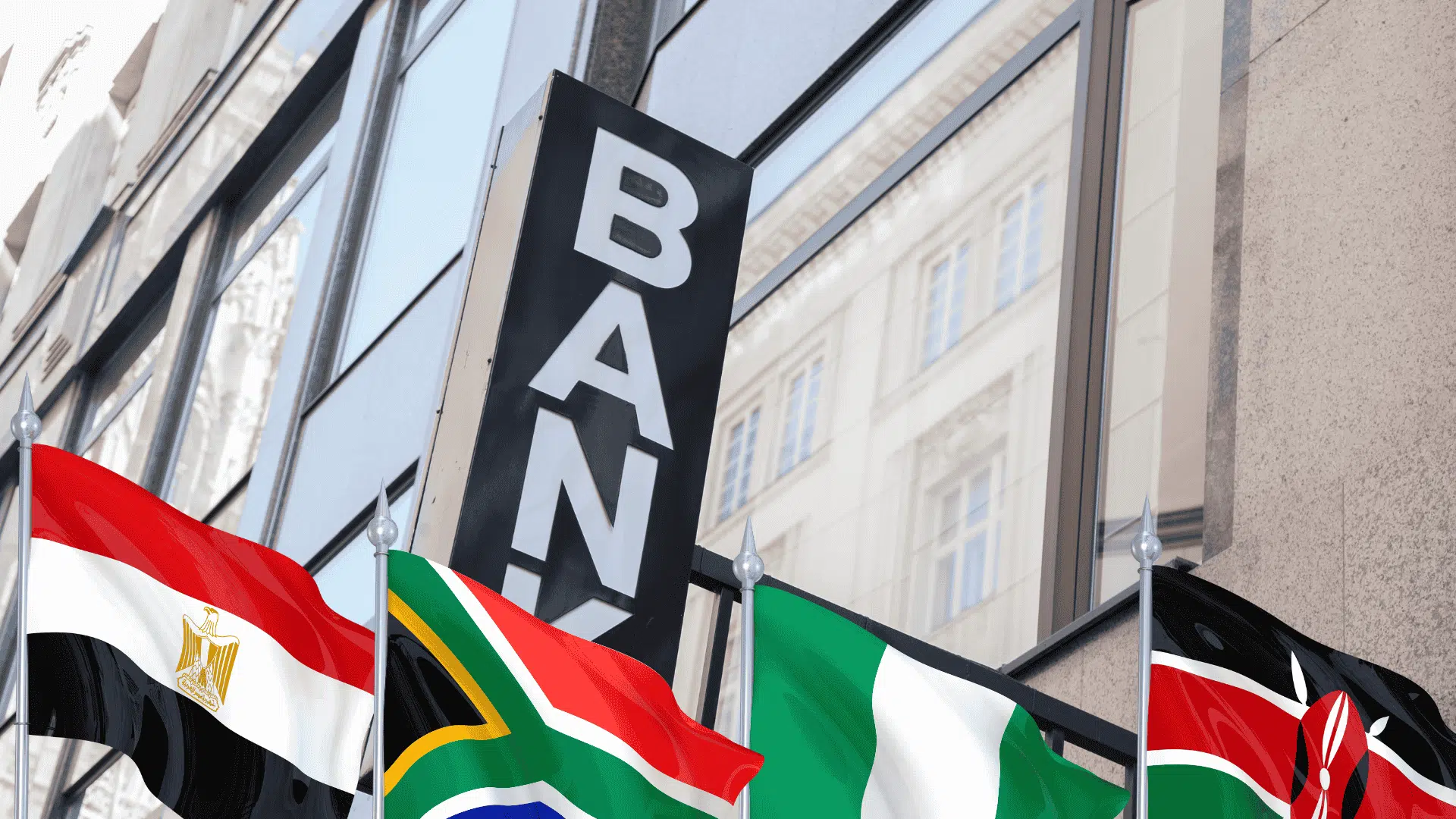Banking
Nedbank lifts earnings 2% as credit losses fall, revenue growth remains subdued
Author
-
Paul Chinedu is a financial writer and business analyst passionate about the intersection of the global economy and Africa. He examines how global trends impact African nations, providing insights that make complex economic issues accessible to all. Through his work.
Paul aims to foster awareness and dialogue about the challenges and opportunities shaping Africa’s future.
Author
-
Paul Chinedu is a financial writer and business analyst passionate about the intersection of the global economy and Africa. He examines how global trends impact African nations, providing insights that make complex economic issues accessible to all. Through his work.
Paul aims to foster awareness and dialogue about the challenges and opportunities shaping Africa’s future.
Kenya’s competition authority fines GT Bank $257,209 in corporate lending dispute
Author
-
Paul Chinedu is a financial writer and business analyst passionate about the intersection of the global economy and Africa. He examines how global trends impact African nations, providing insights that make complex economic issues accessible to all. Through his work.
Paul aims to foster awareness and dialogue about the challenges and opportunities shaping Africa’s future.
Author
-
Paul Chinedu is a financial writer and business analyst passionate about the intersection of the global economy and Africa. He examines how global trends impact African nations, providing insights that make complex economic issues accessible to all. Through his work.
Paul aims to foster awareness and dialogue about the challenges and opportunities shaping Africa’s future.
Standard Chartered Zambia converts reserves to meet $27.4m capital threshold
Author
-
Amarachi is a finance writer with a knack for turning complex economic data into compelling stories. With over half a decade of writing experience—spanning content creation, journalism, and on-the-ground reporting—she found herself in finance by accident but stayed for the thrill of decoding numbers that shape economies. Now, she covers the policies, trends, and market shifts that drive Africa’s financial landscape, making crucial information accessible to readers across the continent.
At Finance In Africa, Amarachi delivers sharp, data-driven insights tailored for bankers, investors, and finance professionals. She analyses central bank policies, fiscal reforms, and regulatory shifts, translating their impact into actionable intelligence. Her coverage spans banking performance, inflation, currency movements, capital markets, fixed income, and corporate earnings—helping industry players navigate risks and opportunities with confidence.
Connect with her on LinkedIn: Amarachi Orjiude-Ndibe.
Author
-
Amarachi is a finance writer with a knack for turning complex economic data into compelling stories. With over half a decade of writing experience—spanning content creation, journalism, and on-the-ground reporting—she found herself in finance by accident but stayed for the thrill of decoding numbers that shape economies. Now, she covers the policies, trends, and market shifts that drive Africa’s financial landscape, making crucial information accessible to readers across the continent.
At Finance In Africa, Amarachi delivers sharp, data-driven insights tailored for bankers, investors, and finance professionals. She analyses central bank policies, fiscal reforms, and regulatory shifts, translating their impact into actionable intelligence. Her coverage spans banking performance, inflation, currency movements, capital markets, fixed income, and corporate earnings—helping industry players navigate risks and opportunities with confidence.
Connect with her on LinkedIn: Amarachi Orjiude-Ndibe.
Africa’s largest bank raises $124m in oversubscribed FLAC debut
Author
-
Amarachi is a finance writer with a knack for turning complex economic data into compelling stories. With over half a decade of writing experience—spanning content creation, journalism, and on-the-ground reporting—she found herself in finance by accident but stayed for the thrill of decoding numbers that shape economies. Now, she covers the policies, trends, and market shifts that drive Africa’s financial landscape, making crucial information accessible to readers across the continent.
At Finance In Africa, Amarachi delivers sharp, data-driven insights tailored for bankers, investors, and finance professionals. She analyses central bank policies, fiscal reforms, and regulatory shifts, translating their impact into actionable intelligence. Her coverage spans banking performance, inflation, currency movements, capital markets, fixed income, and corporate earnings—helping industry players navigate risks and opportunities with confidence.
Connect with her on LinkedIn: Amarachi Orjiude-Ndibe.
Author
-
Amarachi is a finance writer with a knack for turning complex economic data into compelling stories. With over half a decade of writing experience—spanning content creation, journalism, and on-the-ground reporting—she found herself in finance by accident but stayed for the thrill of decoding numbers that shape economies. Now, she covers the policies, trends, and market shifts that drive Africa’s financial landscape, making crucial information accessible to readers across the continent.
At Finance In Africa, Amarachi delivers sharp, data-driven insights tailored for bankers, investors, and finance professionals. She analyses central bank policies, fiscal reforms, and regulatory shifts, translating their impact into actionable intelligence. Her coverage spans banking performance, inflation, currency movements, capital markets, fixed income, and corporate earnings—helping industry players navigate risks and opportunities with confidence.
Connect with her on LinkedIn: Amarachi Orjiude-Ndibe.
Nigeria’s fintech regime split between speed and stability — capital is feeling the strain
Author
-
Pelumi is a freelance writer with over five years of experience spanning content, creative, and academic writing. His work cuts across lifestyle, cryptocurrency, self-improvement, and technical documentation, and he has published academic papers that reflect his blend of curiosity and research. He currently collaborates with Finance in Africa, covering stories on the continent’s financial landscape. Connect with him on LinkedIn and explore his portfolio on Muck Rack.
Author
-
Pelumi is a freelance writer with over five years of experience spanning content, creative, and academic writing. His work cuts across lifestyle, cryptocurrency, self-improvement, and technical documentation, and he has published academic papers that reflect his blend of curiosity and research. He currently collaborates with Finance in Africa, covering stories on the continent’s financial landscape. Connect with him on LinkedIn and explore his portfolio on Muck Rack.
Moroccan banks poised for corporate lending surge in 2026 amid infrastructure push
Author
-
Amarachi is a finance writer with a knack for turning complex economic data into compelling stories. With over half a decade of writing experience—spanning content creation, journalism, and on-the-ground reporting—she found herself in finance by accident but stayed for the thrill of decoding numbers that shape economies. Now, she covers the policies, trends, and market shifts that drive Africa’s financial landscape, making crucial information accessible to readers across the continent.
At Finance In Africa, Amarachi delivers sharp, data-driven insights tailored for bankers, investors, and finance professionals. She analyses central bank policies, fiscal reforms, and regulatory shifts, translating their impact into actionable intelligence. Her coverage spans banking performance, inflation, currency movements, capital markets, fixed income, and corporate earnings—helping industry players navigate risks and opportunities with confidence.
Connect with her on LinkedIn: Amarachi Orjiude-Ndibe.
Author
-
Amarachi is a finance writer with a knack for turning complex economic data into compelling stories. With over half a decade of writing experience—spanning content creation, journalism, and on-the-ground reporting—she found herself in finance by accident but stayed for the thrill of decoding numbers that shape economies. Now, she covers the policies, trends, and market shifts that drive Africa’s financial landscape, making crucial information accessible to readers across the continent.
At Finance In Africa, Amarachi delivers sharp, data-driven insights tailored for bankers, investors, and finance professionals. She analyses central bank policies, fiscal reforms, and regulatory shifts, translating their impact into actionable intelligence. Her coverage spans banking performance, inflation, currency movements, capital markets, fixed income, and corporate earnings—helping industry players navigate risks and opportunities with confidence.
Connect with her on LinkedIn: Amarachi Orjiude-Ndibe.
How Nigeria’s digital lenders are expanding access to credit
Author
-
Majesty is a law graduate, tax enthusiast, and creative writer.
She co-founded the Tax Club at the University of Port Harcourt and served as its pioneer Vice President, creating a platform for students to engage with real-world tax issues. Let’s catch up here.
Author
-
Majesty is a law graduate, tax enthusiast, and creative writer.
She co-founded the Tax Club at the University of Port Harcourt and served as its pioneer Vice President, creating a platform for students to engage with real-world tax issues. Let’s catch up here.
Why South African banking giant Absa is staying out of Ethiopia—for now
Author
-
Amarachi is a finance writer with a knack for turning complex economic data into compelling stories. With over half a decade of writing experience—spanning content creation, journalism, and on-the-ground reporting—she found herself in finance by accident but stayed for the thrill of decoding numbers that shape economies. Now, she covers the policies, trends, and market shifts that drive Africa’s financial landscape, making crucial information accessible to readers across the continent.
At Finance In Africa, Amarachi delivers sharp, data-driven insights tailored for bankers, investors, and finance professionals. She analyses central bank policies, fiscal reforms, and regulatory shifts, translating their impact into actionable intelligence. Her coverage spans banking performance, inflation, currency movements, capital markets, fixed income, and corporate earnings—helping industry players navigate risks and opportunities with confidence.
Connect with her on LinkedIn: Amarachi Orjiude-Ndibe.
Author
-
Amarachi is a finance writer with a knack for turning complex economic data into compelling stories. With over half a decade of writing experience—spanning content creation, journalism, and on-the-ground reporting—she found herself in finance by accident but stayed for the thrill of decoding numbers that shape economies. Now, she covers the policies, trends, and market shifts that drive Africa’s financial landscape, making crucial information accessible to readers across the continent.
At Finance In Africa, Amarachi delivers sharp, data-driven insights tailored for bankers, investors, and finance professionals. She analyses central bank policies, fiscal reforms, and regulatory shifts, translating their impact into actionable intelligence. Her coverage spans banking performance, inflation, currency movements, capital markets, fixed income, and corporate earnings—helping industry players navigate risks and opportunities with confidence.
Connect with her on LinkedIn: Amarachi Orjiude-Ndibe.
Banks in Egypt and Nigeria face shrinking profits in 2026 as rate cuts bite
Author
-
Amarachi is a finance writer with a knack for turning complex economic data into compelling stories. With over half a decade of writing experience—spanning content creation, journalism, and on-the-ground reporting—she found herself in finance by accident but stayed for the thrill of decoding numbers that shape economies. Now, she covers the policies, trends, and market shifts that drive Africa’s financial landscape, making crucial information accessible to readers across the continent.
At Finance In Africa, Amarachi delivers sharp, data-driven insights tailored for bankers, investors, and finance professionals. She analyses central bank policies, fiscal reforms, and regulatory shifts, translating their impact into actionable intelligence. Her coverage spans banking performance, inflation, currency movements, capital markets, fixed income, and corporate earnings—helping industry players navigate risks and opportunities with confidence.
Connect with her on LinkedIn: Amarachi Orjiude-Ndibe.
Author
-
Amarachi is a finance writer with a knack for turning complex economic data into compelling stories. With over half a decade of writing experience—spanning content creation, journalism, and on-the-ground reporting—she found herself in finance by accident but stayed for the thrill of decoding numbers that shape economies. Now, she covers the policies, trends, and market shifts that drive Africa’s financial landscape, making crucial information accessible to readers across the continent.
At Finance In Africa, Amarachi delivers sharp, data-driven insights tailored for bankers, investors, and finance professionals. She analyses central bank policies, fiscal reforms, and regulatory shifts, translating their impact into actionable intelligence. Her coverage spans banking performance, inflation, currency movements, capital markets, fixed income, and corporate earnings—helping industry players navigate risks and opportunities with confidence.
Connect with her on LinkedIn: Amarachi Orjiude-Ndibe.
Afreximbank completes pan-African mandate as South Africa signs $8bn programme
Author
-
I’m building Finance in Africa, a platform making financial information on banking, insurance, capital markets, and fintech across the continent more accessible and actionable. My work sits at the intersection of journalism, finance, technology and storytelling—with a focus on driving industry insight and professional relevance.
Previously, I was Brand Storyteller at Moniepoint, where I led thought leadership and business storytelling that shaped investor conversations and unlocked partnerships. I also served as Managing Editor at Techpoint Africa, where I directed coverage of Africa’s fintech and innovation economy. I’ve developed industry reports, interviewed global tech and finance leaders, and co-produced events and podcasts that reached hundreds of thousands.
Let’s connect on LinkedIn or Twitter (sorry X), or send tips to emmanuel@financeinafrica.com.
Author
-
I’m building Finance in Africa, a platform making financial information on banking, insurance, capital markets, and fintech across the continent more accessible and actionable. My work sits at the intersection of journalism, finance, technology and storytelling—with a focus on driving industry insight and professional relevance.
Previously, I was Brand Storyteller at Moniepoint, where I led thought leadership and business storytelling that shaped investor conversations and unlocked partnerships. I also served as Managing Editor at Techpoint Africa, where I directed coverage of Africa’s fintech and innovation economy. I’ve developed industry reports, interviewed global tech and finance leaders, and co-produced events and podcasts that reached hundreds of thousands.
Let’s connect on LinkedIn or Twitter (sorry X), or send tips to emmanuel@financeinafrica.com.
Why earnings per share fell 94% at Nigeria’s oldest bank in 2025
Author
-
I’m building Finance in Africa, a platform making financial information on banking, insurance, capital markets, and fintech across the continent more accessible and actionable. My work sits at the intersection of journalism, finance, technology and storytelling—with a focus on driving industry insight and professional relevance.
Previously, I was Brand Storyteller at Moniepoint, where I led thought leadership and business storytelling that shaped investor conversations and unlocked partnerships. I also served as Managing Editor at Techpoint Africa, where I directed coverage of Africa’s fintech and innovation economy. I’ve developed industry reports, interviewed global tech and finance leaders, and co-produced events and podcasts that reached hundreds of thousands.
Let’s connect on LinkedIn or Twitter (sorry X), or send tips to emmanuel@financeinafrica.com.
Author
-
I’m building Finance in Africa, a platform making financial information on banking, insurance, capital markets, and fintech across the continent more accessible and actionable. My work sits at the intersection of journalism, finance, technology and storytelling—with a focus on driving industry insight and professional relevance.
Previously, I was Brand Storyteller at Moniepoint, where I led thought leadership and business storytelling that shaped investor conversations and unlocked partnerships. I also served as Managing Editor at Techpoint Africa, where I directed coverage of Africa’s fintech and innovation economy. I’ve developed industry reports, interviewed global tech and finance leaders, and co-produced events and podcasts that reached hundreds of thousands.
Let’s connect on LinkedIn or Twitter (sorry X), or send tips to emmanuel@financeinafrica.com.
Ethiopia ramps up FX market interventions, sells $640m to banks in January
Author
-
Amarachi is a finance writer with a knack for turning complex economic data into compelling stories. With over half a decade of writing experience—spanning content creation, journalism, and on-the-ground reporting—she found herself in finance by accident but stayed for the thrill of decoding numbers that shape economies. Now, she covers the policies, trends, and market shifts that drive Africa’s financial landscape, making crucial information accessible to readers across the continent.
At Finance In Africa, Amarachi delivers sharp, data-driven insights tailored for bankers, investors, and finance professionals. She analyses central bank policies, fiscal reforms, and regulatory shifts, translating their impact into actionable intelligence. Her coverage spans banking performance, inflation, currency movements, capital markets, fixed income, and corporate earnings—helping industry players navigate risks and opportunities with confidence.
Connect with her on LinkedIn: Amarachi Orjiude-Ndibe.
Author
-
Amarachi is a finance writer with a knack for turning complex economic data into compelling stories. With over half a decade of writing experience—spanning content creation, journalism, and on-the-ground reporting—she found herself in finance by accident but stayed for the thrill of decoding numbers that shape economies. Now, she covers the policies, trends, and market shifts that drive Africa’s financial landscape, making crucial information accessible to readers across the continent.
At Finance In Africa, Amarachi delivers sharp, data-driven insights tailored for bankers, investors, and finance professionals. She analyses central bank policies, fiscal reforms, and regulatory shifts, translating their impact into actionable intelligence. Her coverage spans banking performance, inflation, currency movements, capital markets, fixed income, and corporate earnings—helping industry players navigate risks and opportunities with confidence.
Connect with her on LinkedIn: Amarachi Orjiude-Ndibe.
Fitch knocks Afreximbank into junk territory after lender cuts ties
Author
-
Amarachi is a finance writer with a knack for turning complex economic data into compelling stories. With over half a decade of writing experience—spanning content creation, journalism, and on-the-ground reporting—she found herself in finance by accident but stayed for the thrill of decoding numbers that shape economies. Now, she covers the policies, trends, and market shifts that drive Africa’s financial landscape, making crucial information accessible to readers across the continent.
At Finance In Africa, Amarachi delivers sharp, data-driven insights tailored for bankers, investors, and finance professionals. She analyses central bank policies, fiscal reforms, and regulatory shifts, translating their impact into actionable intelligence. Her coverage spans banking performance, inflation, currency movements, capital markets, fixed income, and corporate earnings—helping industry players navigate risks and opportunities with confidence.
Connect with her on LinkedIn: Amarachi Orjiude-Ndibe.
Author
-
Amarachi is a finance writer with a knack for turning complex economic data into compelling stories. With over half a decade of writing experience—spanning content creation, journalism, and on-the-ground reporting—she found herself in finance by accident but stayed for the thrill of decoding numbers that shape economies. Now, she covers the policies, trends, and market shifts that drive Africa’s financial landscape, making crucial information accessible to readers across the continent.
At Finance In Africa, Amarachi delivers sharp, data-driven insights tailored for bankers, investors, and finance professionals. She analyses central bank policies, fiscal reforms, and regulatory shifts, translating their impact into actionable intelligence. Her coverage spans banking performance, inflation, currency movements, capital markets, fixed income, and corporate earnings—helping industry players navigate risks and opportunities with confidence.
Connect with her on LinkedIn: Amarachi Orjiude-Ndibe.
This EU decision blocked over $40 billion in capital across six African economies
Author
-
Majesty is a law graduate, tax enthusiast, and creative writer.
She co-founded the Tax Club at the University of Port Harcourt and served as its pioneer Vice President, creating a platform for students to engage with real-world tax issues. Let’s catch up here.
Author
-
Majesty is a law graduate, tax enthusiast, and creative writer.
She co-founded the Tax Club at the University of Port Harcourt and served as its pioneer Vice President, creating a platform for students to engage with real-world tax issues. Let’s catch up here.
SA’s Nedbank prices NCBA takeover at $856m in East Africa expansion push
Authors
-
-
I’m building Finance in Africa, a platform making financial information on banking, insurance, capital markets, and fintech across the continent more accessible and actionable. My work sits at the intersection of journalism, finance, technology and storytelling—with a focus on driving industry insight and professional relevance.
Previously, I was Brand Storyteller at Moniepoint, where I led thought leadership and business storytelling that shaped investor conversations and unlocked partnerships. I also served as Managing Editor at Techpoint Africa, where I directed coverage of Africa’s fintech and innovation economy. I’ve developed industry reports, interviewed global tech and finance leaders, and co-produced events and podcasts that reached hundreds of thousands.
Let’s connect on LinkedIn or Twitter (sorry X), or send tips to emmanuel@financeinafrica.com.
Authors
-
-
I’m building Finance in Africa, a platform making financial information on banking, insurance, capital markets, and fintech across the continent more accessible and actionable. My work sits at the intersection of journalism, finance, technology and storytelling—with a focus on driving industry insight and professional relevance.
Previously, I was Brand Storyteller at Moniepoint, where I led thought leadership and business storytelling that shaped investor conversations and unlocked partnerships. I also served as Managing Editor at Techpoint Africa, where I directed coverage of Africa’s fintech and innovation economy. I’ve developed industry reports, interviewed global tech and finance leaders, and co-produced events and podcasts that reached hundreds of thousands.
Let’s connect on LinkedIn or Twitter (sorry X), or send tips to emmanuel@financeinafrica.com.
Ethiopia’s banking sector posts strong gains as deregulation takes hold
Author
-
Pelumi is a freelance writer with over five years of experience spanning content, creative, and academic writing. His work cuts across lifestyle, cryptocurrency, self-improvement, and technical documentation, and he has published academic papers that reflect his blend of curiosity and research. He currently collaborates with Finance in Africa, covering stories on the continent’s financial landscape. Connect with him on LinkedIn and explore his portfolio on Muck Rack.
Author
-
Pelumi is a freelance writer with over five years of experience spanning content, creative, and academic writing. His work cuts across lifestyle, cryptocurrency, self-improvement, and technical documentation, and he has published academic papers that reflect his blend of curiosity and research. He currently collaborates with Finance in Africa, covering stories on the continent’s financial landscape. Connect with him on LinkedIn and explore his portfolio on Muck Rack.
Africa’s banking titans spent over $537m on expansion deals in 2025
Author
-
Amarachi is a finance writer with a knack for turning complex economic data into compelling stories. With over half a decade of writing experience—spanning content creation, journalism, and on-the-ground reporting—she found herself in finance by accident but stayed for the thrill of decoding numbers that shape economies. Now, she covers the policies, trends, and market shifts that drive Africa’s financial landscape, making crucial information accessible to readers across the continent.
At Finance In Africa, Amarachi delivers sharp, data-driven insights tailored for bankers, investors, and finance professionals. She analyses central bank policies, fiscal reforms, and regulatory shifts, translating their impact into actionable intelligence. Her coverage spans banking performance, inflation, currency movements, capital markets, fixed income, and corporate earnings—helping industry players navigate risks and opportunities with confidence.
Connect with her on LinkedIn: Amarachi Orjiude-Ndibe.
Author
-
Amarachi is a finance writer with a knack for turning complex economic data into compelling stories. With over half a decade of writing experience—spanning content creation, journalism, and on-the-ground reporting—she found herself in finance by accident but stayed for the thrill of decoding numbers that shape economies. Now, she covers the policies, trends, and market shifts that drive Africa’s financial landscape, making crucial information accessible to readers across the continent.
At Finance In Africa, Amarachi delivers sharp, data-driven insights tailored for bankers, investors, and finance professionals. She analyses central bank policies, fiscal reforms, and regulatory shifts, translating their impact into actionable intelligence. Her coverage spans banking performance, inflation, currency movements, capital markets, fixed income, and corporate earnings—helping industry players navigate risks and opportunities with confidence.
Connect with her on LinkedIn: Amarachi Orjiude-Ndibe.
Kenya’s largest lender secures $60m AfDB support to deepen regional trade
Author
-
Amarachi is a finance writer with a knack for turning complex economic data into compelling stories. With over half a decade of writing experience—spanning content creation, journalism, and on-the-ground reporting—she found herself in finance by accident but stayed for the thrill of decoding numbers that shape economies. Now, she covers the policies, trends, and market shifts that drive Africa’s financial landscape, making crucial information accessible to readers across the continent.
At Finance In Africa, Amarachi delivers sharp, data-driven insights tailored for bankers, investors, and finance professionals. She analyses central bank policies, fiscal reforms, and regulatory shifts, translating their impact into actionable intelligence. Her coverage spans banking performance, inflation, currency movements, capital markets, fixed income, and corporate earnings—helping industry players navigate risks and opportunities with confidence.
Connect with her on LinkedIn: Amarachi Orjiude-Ndibe.
Author
-
Amarachi is a finance writer with a knack for turning complex economic data into compelling stories. With over half a decade of writing experience—spanning content creation, journalism, and on-the-ground reporting—she found herself in finance by accident but stayed for the thrill of decoding numbers that shape economies. Now, she covers the policies, trends, and market shifts that drive Africa’s financial landscape, making crucial information accessible to readers across the continent.
At Finance In Africa, Amarachi delivers sharp, data-driven insights tailored for bankers, investors, and finance professionals. She analyses central bank policies, fiscal reforms, and regulatory shifts, translating their impact into actionable intelligence. Her coverage spans banking performance, inflation, currency movements, capital markets, fixed income, and corporate earnings—helping industry players navigate risks and opportunities with confidence.
Connect with her on LinkedIn: Amarachi Orjiude-Ndibe.
A $780m FX intervention fails to curb Ethiopia’s currency slide
Author
-
Amarachi is a finance writer with a knack for turning complex economic data into compelling stories. With over half a decade of writing experience—spanning content creation, journalism, and on-the-ground reporting—she found herself in finance by accident but stayed for the thrill of decoding numbers that shape economies. Now, she covers the policies, trends, and market shifts that drive Africa’s financial landscape, making crucial information accessible to readers across the continent.
At Finance In Africa, Amarachi delivers sharp, data-driven insights tailored for bankers, investors, and finance professionals. She analyses central bank policies, fiscal reforms, and regulatory shifts, translating their impact into actionable intelligence. Her coverage spans banking performance, inflation, currency movements, capital markets, fixed income, and corporate earnings—helping industry players navigate risks and opportunities with confidence.
Connect with her on LinkedIn: Amarachi Orjiude-Ndibe.
Author
-
Amarachi is a finance writer with a knack for turning complex economic data into compelling stories. With over half a decade of writing experience—spanning content creation, journalism, and on-the-ground reporting—she found herself in finance by accident but stayed for the thrill of decoding numbers that shape economies. Now, she covers the policies, trends, and market shifts that drive Africa’s financial landscape, making crucial information accessible to readers across the continent.
At Finance In Africa, Amarachi delivers sharp, data-driven insights tailored for bankers, investors, and finance professionals. She analyses central bank policies, fiscal reforms, and regulatory shifts, translating their impact into actionable intelligence. Her coverage spans banking performance, inflation, currency movements, capital markets, fixed income, and corporate earnings—helping industry players navigate risks and opportunities with confidence.
Connect with her on LinkedIn: Amarachi Orjiude-Ndibe.
Nigeria’s central bank ousts two mortgage lenders over capital breaches
Author
-
Amarachi is a finance writer with a knack for turning complex economic data into compelling stories. With over half a decade of writing experience—spanning content creation, journalism, and on-the-ground reporting—she found herself in finance by accident but stayed for the thrill of decoding numbers that shape economies. Now, she covers the policies, trends, and market shifts that drive Africa’s financial landscape, making crucial information accessible to readers across the continent.
At Finance In Africa, Amarachi delivers sharp, data-driven insights tailored for bankers, investors, and finance professionals. She analyses central bank policies, fiscal reforms, and regulatory shifts, translating their impact into actionable intelligence. Her coverage spans banking performance, inflation, currency movements, capital markets, fixed income, and corporate earnings—helping industry players navigate risks and opportunities with confidence.
Connect with her on LinkedIn: Amarachi Orjiude-Ndibe.
Author
-
Amarachi is a finance writer with a knack for turning complex economic data into compelling stories. With over half a decade of writing experience—spanning content creation, journalism, and on-the-ground reporting—she found herself in finance by accident but stayed for the thrill of decoding numbers that shape economies. Now, she covers the policies, trends, and market shifts that drive Africa’s financial landscape, making crucial information accessible to readers across the continent.
At Finance In Africa, Amarachi delivers sharp, data-driven insights tailored for bankers, investors, and finance professionals. She analyses central bank policies, fiscal reforms, and regulatory shifts, translating their impact into actionable intelligence. Her coverage spans banking performance, inflation, currency movements, capital markets, fixed income, and corporate earnings—helping industry players navigate risks and opportunities with confidence.
Connect with her on LinkedIn: Amarachi Orjiude-Ndibe.
Top stories
Leverage how money works in Africa
Get exclusive insights across banking, payments, and technology to gain a competitive advantage in Africa’s financial sector.
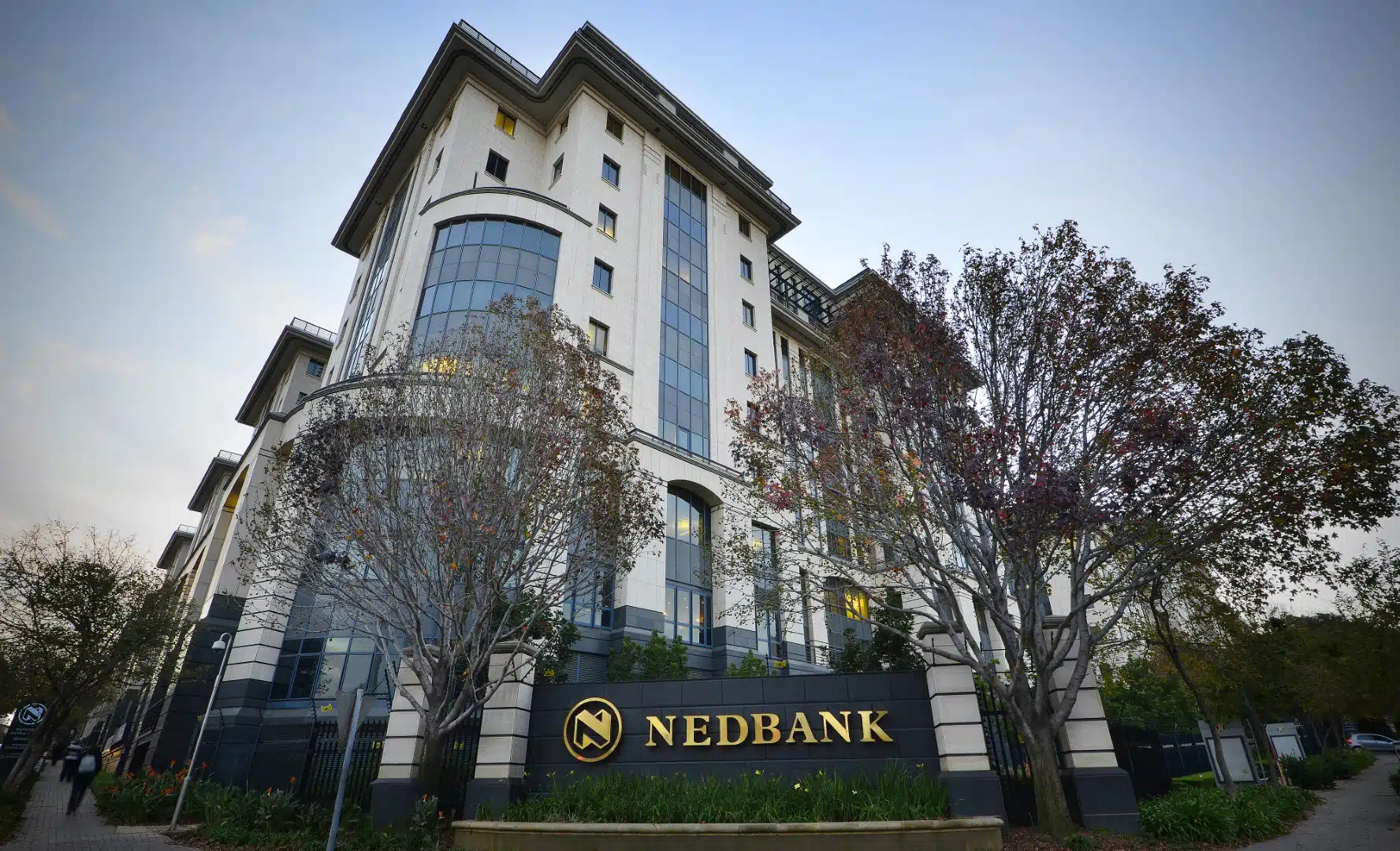
South Africa’s Nedbank Group reported a modest 2% increase in headline earnings for the full year 2025, reaching $1.07 billion (R17.2 billion), as improved credit quality helped offset subdued revenue growth amid ongoing economic challenges in the country.

Kenya’s competition regulator has fined GT Bank $257,209 for misleading credit terms and backdated interest charges in a corporate lending dispute.
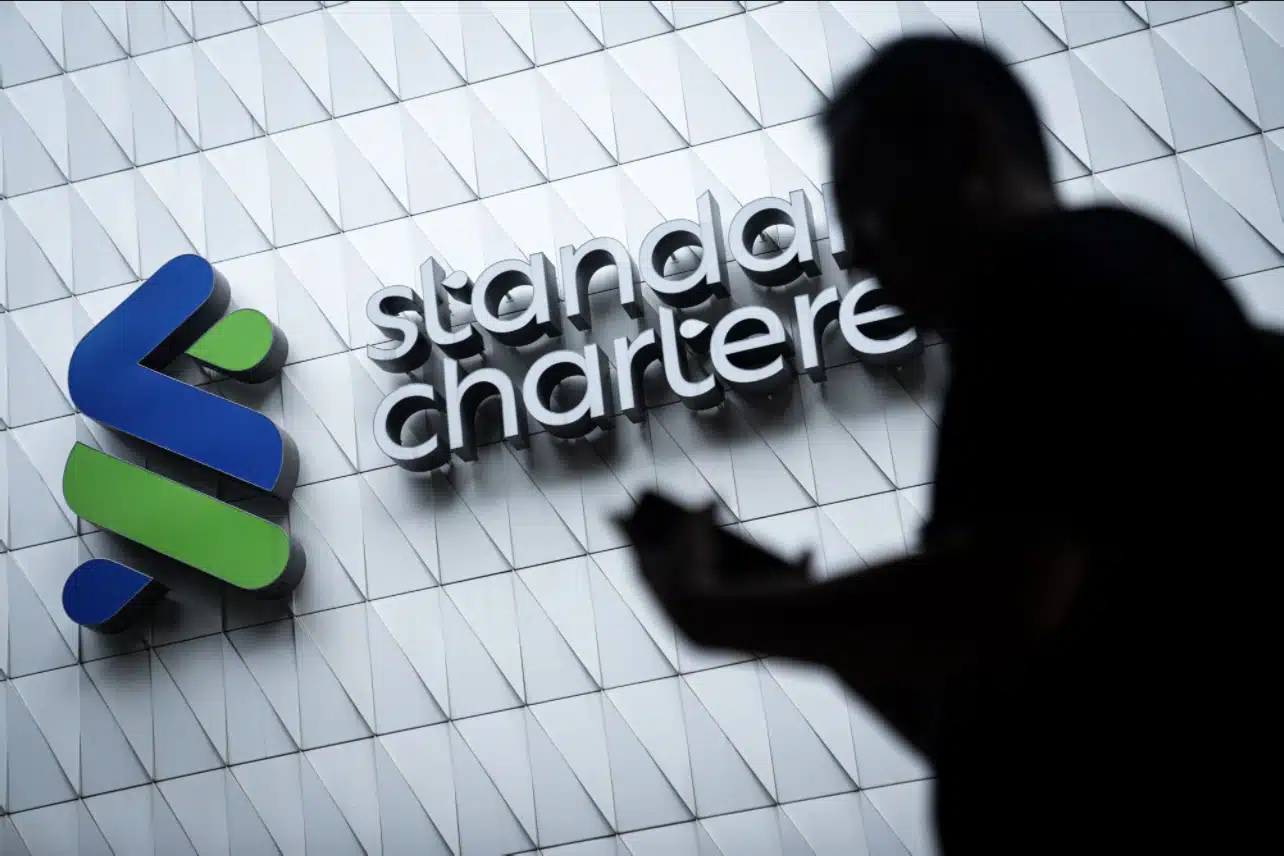
Bank of Zambia records show the minimum paid-up capital requirement was first introduced in January 2012, giving the British bank a 14-year window to reach compliance.
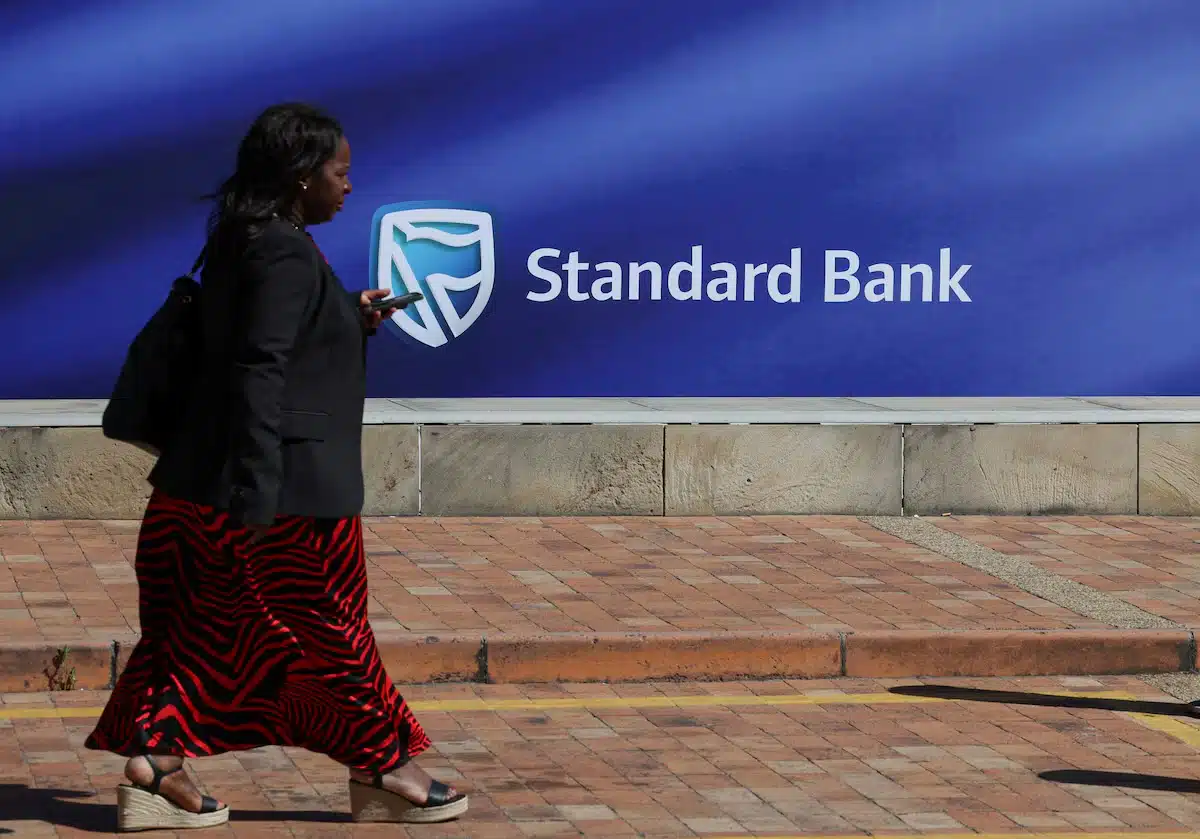
The historic transaction attracted bids exceeding $619 million from more than 30 institutional investors, underscoring strong demand for instruments designed to shield banks and taxpayers during periods of financial stress.
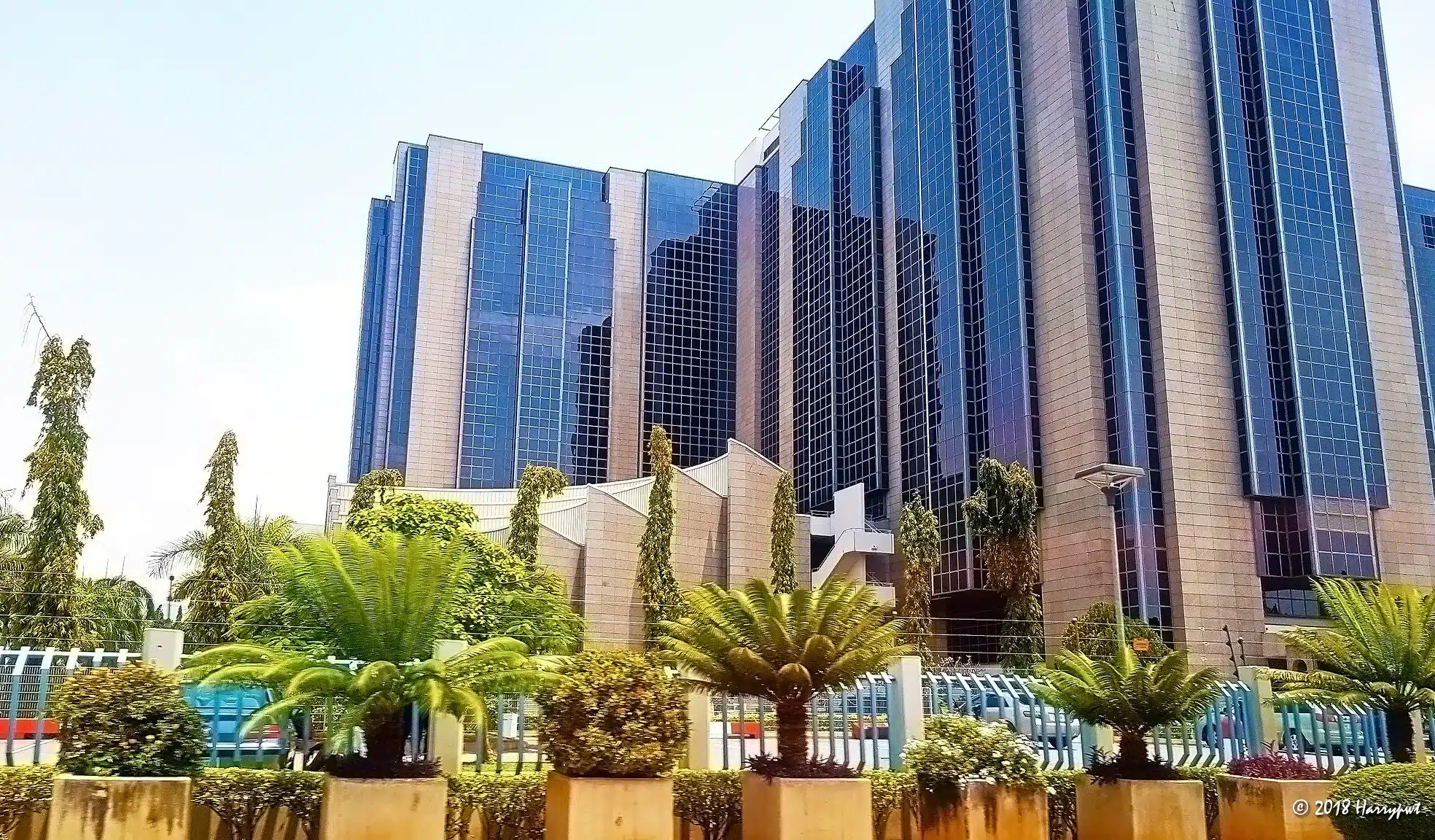
Nigeria’s fintech ecosystem is one of Africa’s most vibrant, with its nucleus positioned in Lagos. According to the 2024 annual data released by the Nigeria Inter-Bank Settlement System (NIBSS)…

S&P Global expects Moroccan banks to step up lending to corporate borrowers in 2026 as large-scale infrastructure spending, pro-business reforms and steady economic growth create a more supportive operating backdrop.

Nigeria’s digital lending boom is widening credit access and fuelling growth, but weak regulation, high defaults and tax gaps threaten fiscal stability across Africa’s fintech surge.

Absa maintains that while the country’s recent financial market reforms are encouraging, it will only consider entry once the rules are less restrictive.

Banks in Egypt and Nigeria are likely to see profits drop in 2026 as central banks accelerate interest rate cuts following a sharp slowdown in inflation and increasingly favorable macroeconomic conditions, S&P Global said in its latest Africa banking outlook.
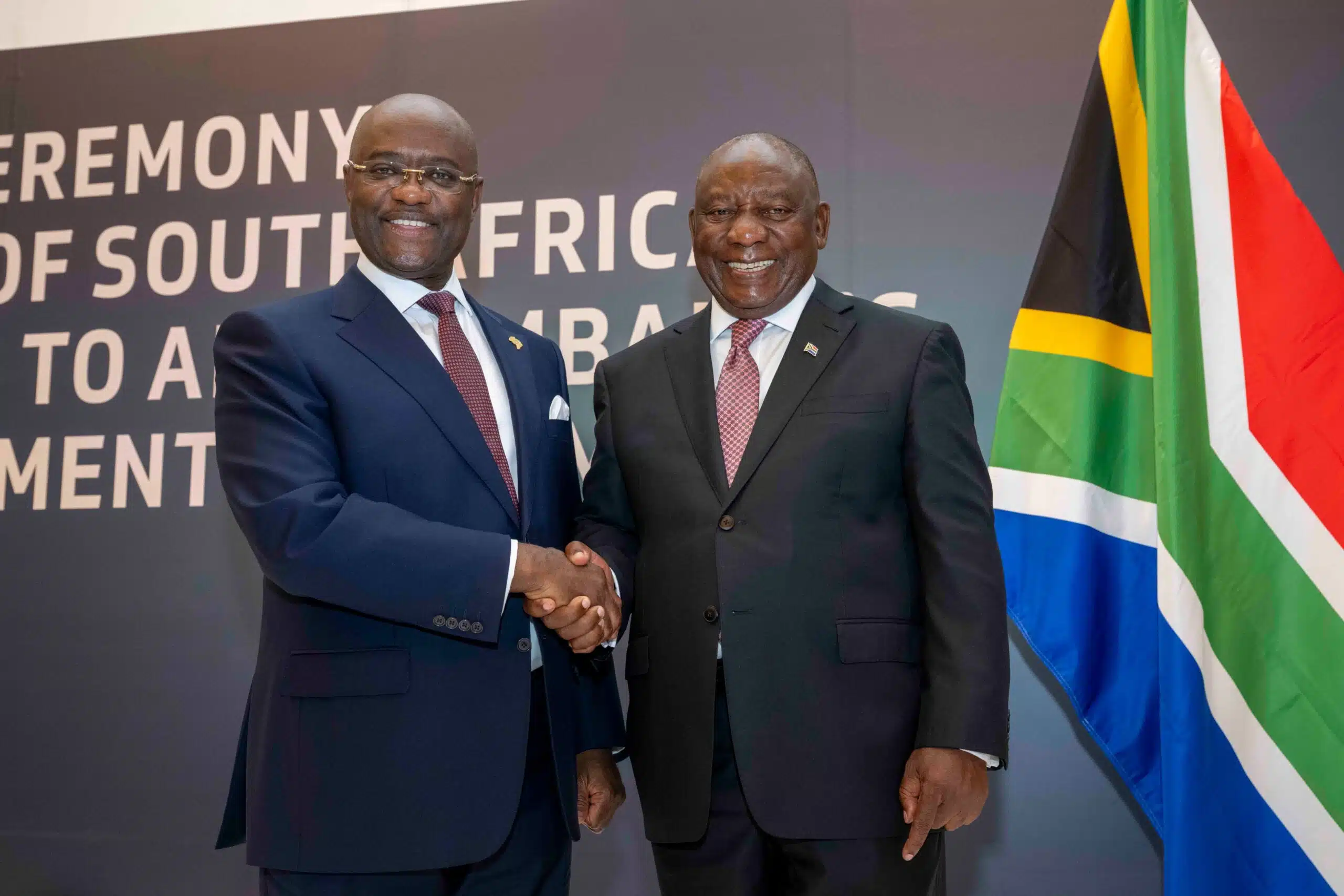
South Africa has joined Afreximbank, completing the lender’s continental membership and strengthening its institutional standing as it faces rating pressure and tighter global funding conditions.
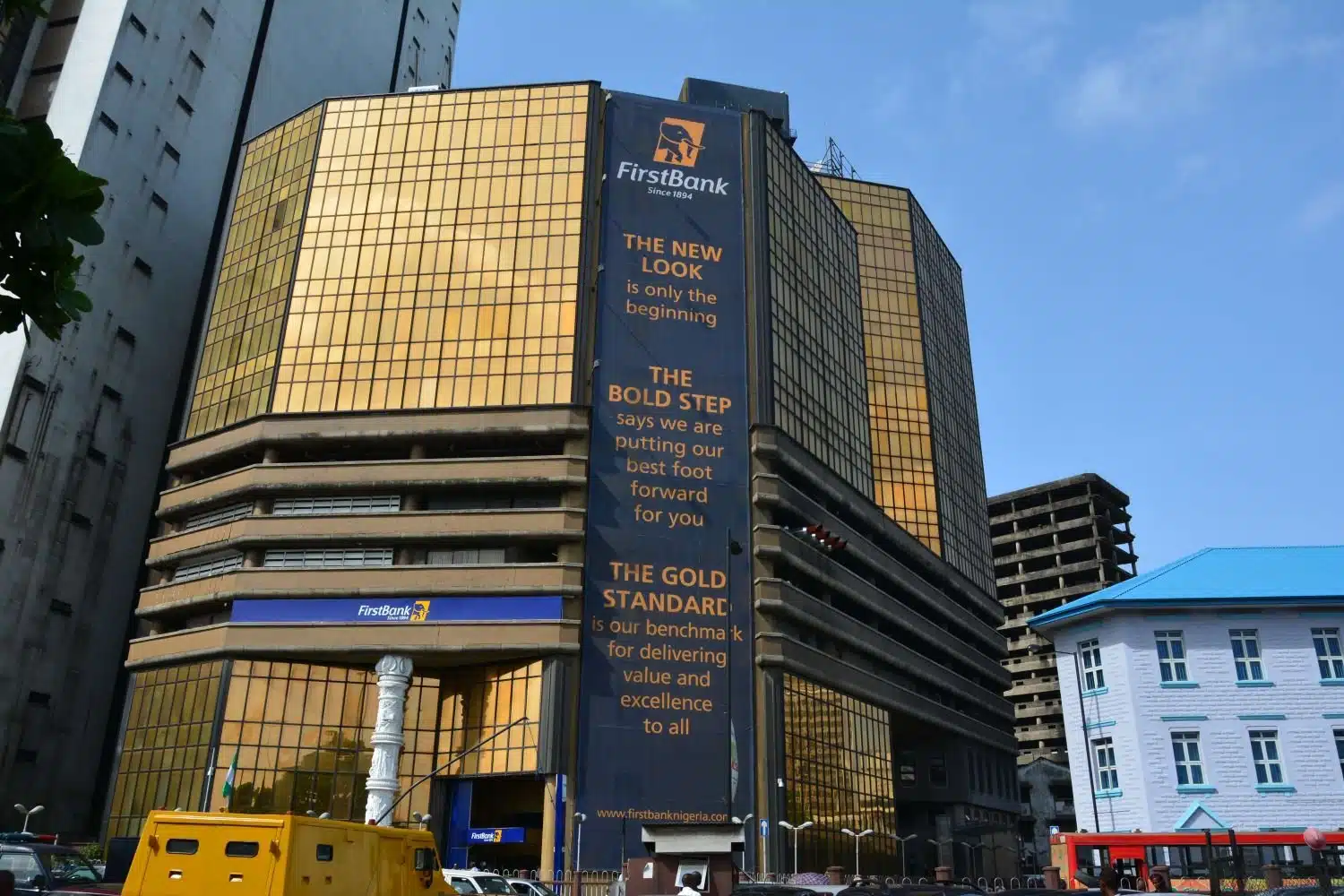
First HoldCo’s earnings per share collapsed in 2025 after heavy loan-loss provisions and divestment losses wiped out profits, even as interest income hit record levels.

January’s disbursements, which includes a record $500 million auction, represents 82% of the $780 million sold throughout 2025, highlighting a significant acceleration in the scale of market operations.

The move comes days after Afreximbank announced it had severed ties with Fitch, citing concerns that the agency’s methodology failed to reflect the bank’s legal mandate, treaty protections, and unique role in financing African trade and development.
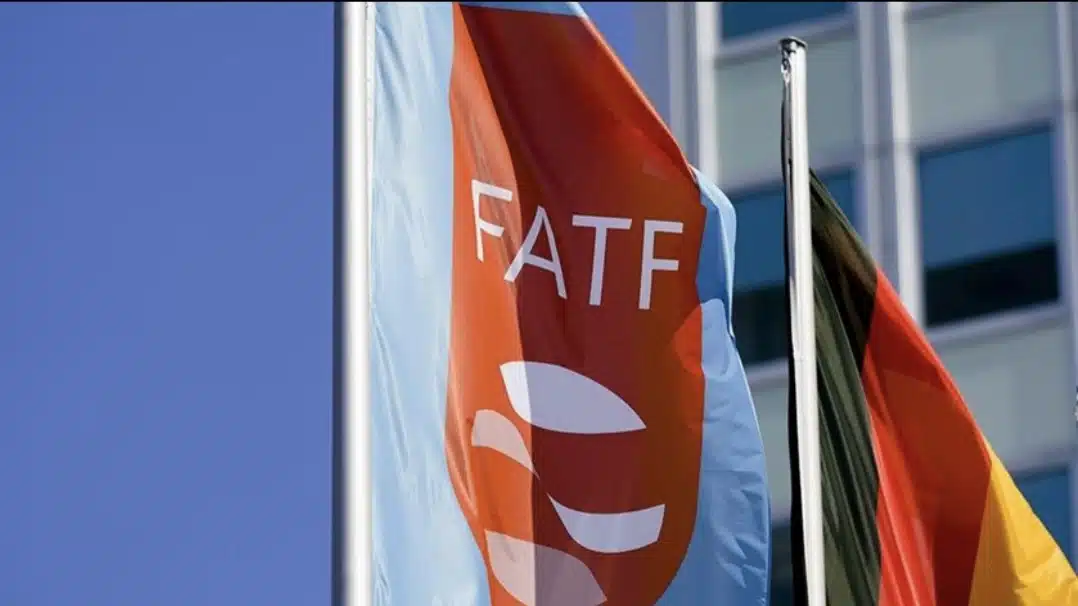
The European Union has lifted its high-risk designation for six African countries, after years in which the listing reshaped how capital moved in and out of their economies.

South Africa’s Nedbank Group has submitted a strategic investment proposal and notice of intention to acquire a controlling stake in NCBA Group PLC, signalling a significant push into East Africa’s banking market.
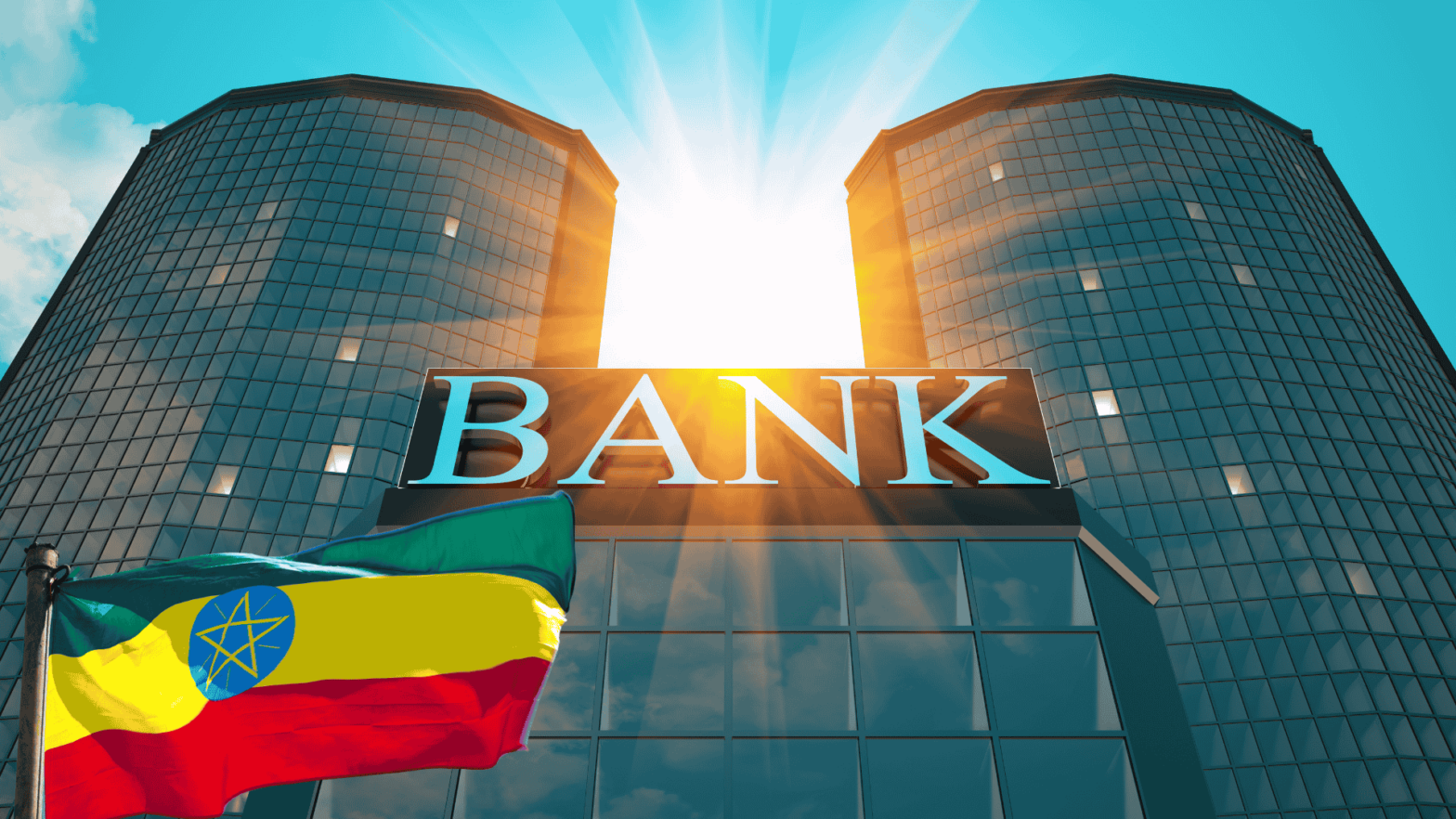
After decades of protectionism, Ethiopia’s banking reforms are translating into higher profits, faster digital expansion and growing foreign interest, even as inflation, credit concentration and competition risks persist.
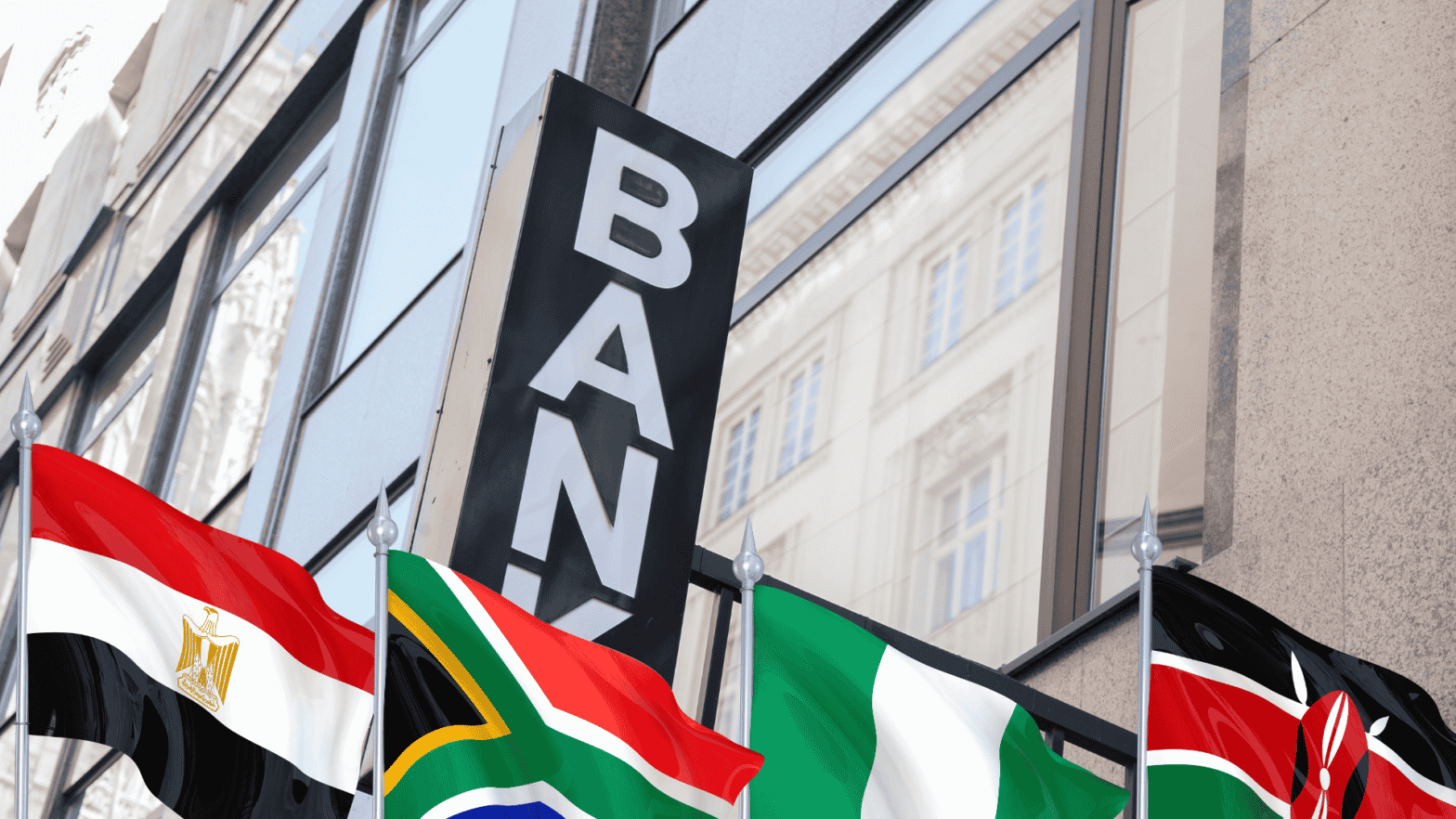
Africa’s largest lenders spent over $537m on acquisitions in 2025, led by South African banks, even as recapitalisation rules and uneven profits reshaped expansion plans today…
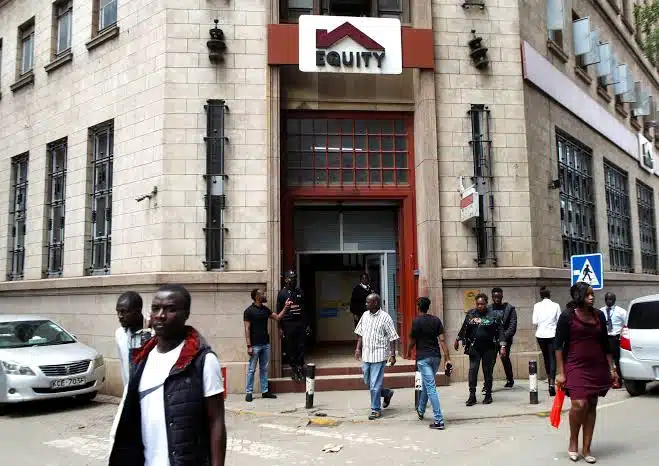
With the AfDB providing full guarantee on non-payment risk, Equity Bank can lower the cost of issuing letters of credit and expand trade finance volumes without adding pressure to its balance sheet.
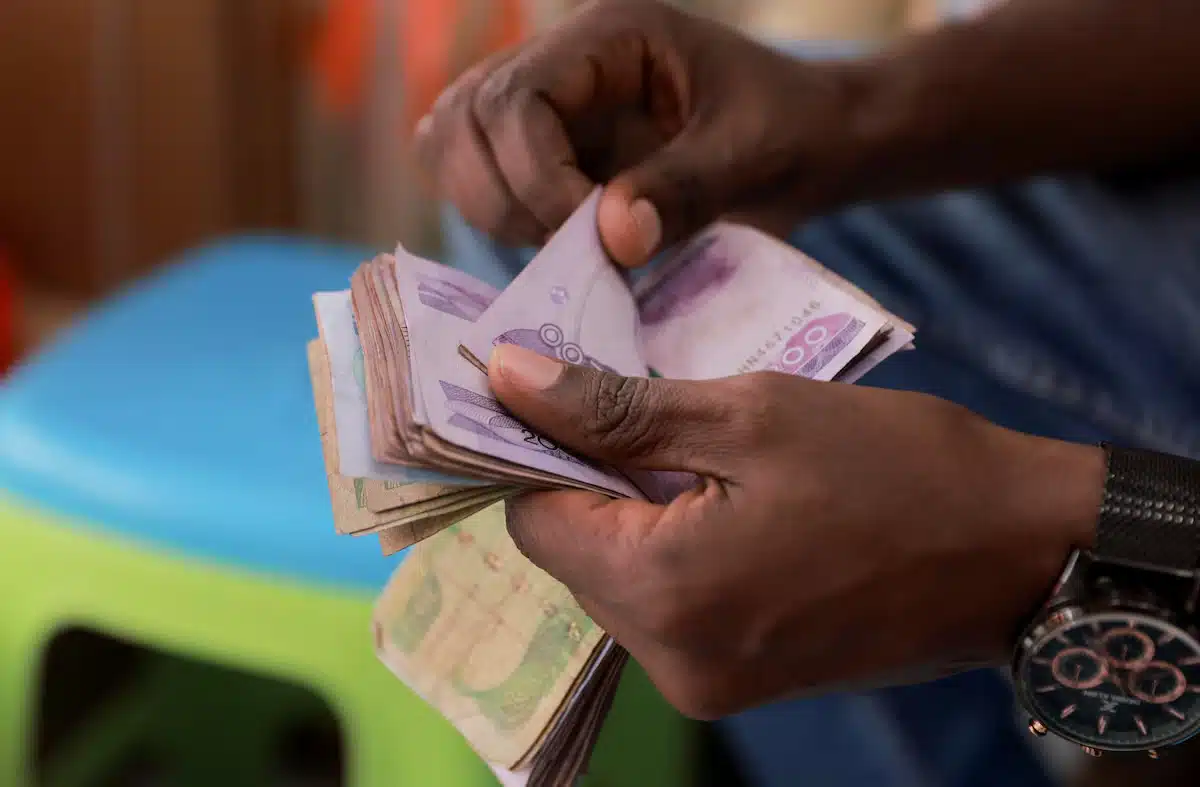
The figure reflects the combined value of 10 FX auctions held by the National Bank of Ethiopia (NBE) between February and the second week of December 2025, aimed at deepening liquidity and strengthening the Birr
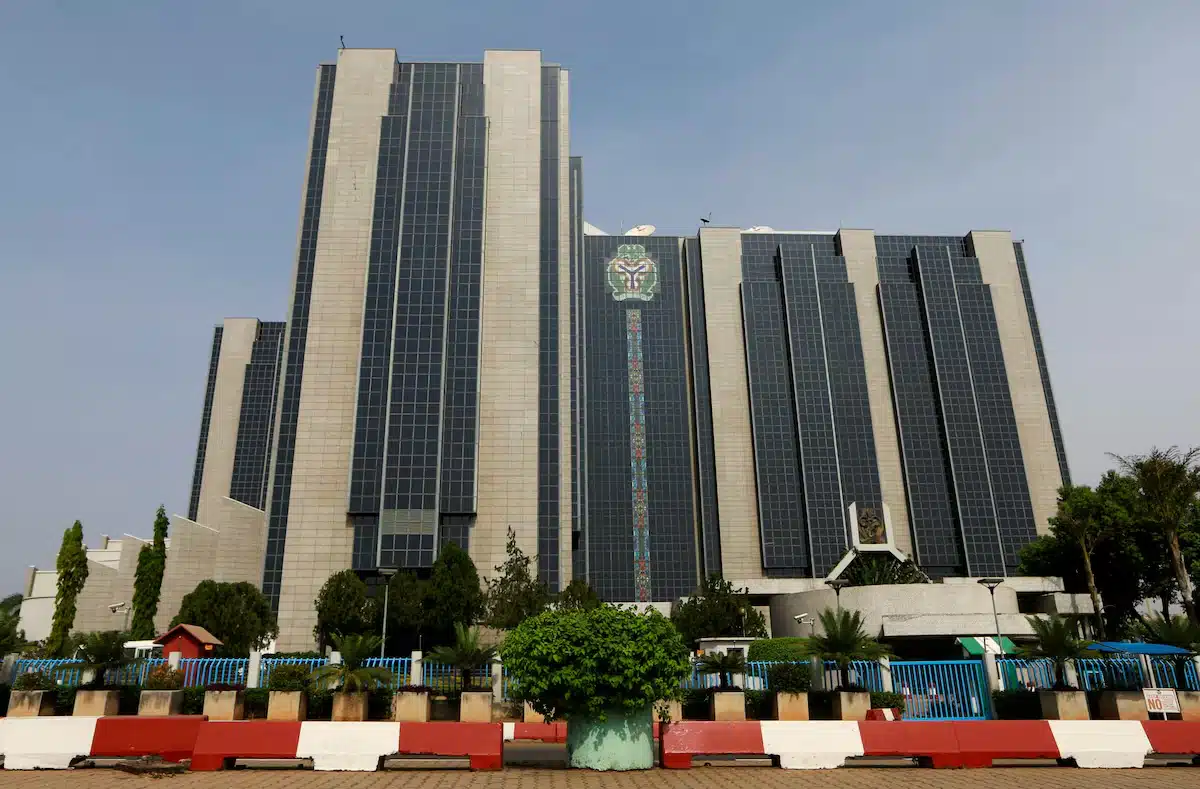
The CBN pointed out that both mortgage lenders were critically undercapitalised and had insufficient assets to cover their liabilities, pointing to a weak solvency position.
Leverage how money works in Africa
Get exclusive insights across banking, payments, and technology to gain a competitive advantage in Africa’s financial sector.

